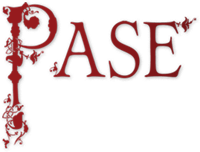Table of Contents
Top of page
Discussion
Bibliography
Forms
Distribution Map
Property List
People of this Name
Bottom of page
Swithgar
Male
CPL
4 of 5
Discussion of the name
Swithgar is a masculine OE name formed from the elements swīð (‘strong’) and gār (‘spear’). Only one example is currently recorded in PASE, a witness in three charters of the 1060s which are undoubted forgeries. A powerful case has nonetheless been made for the existence of that Swithgar, and he can be confidently identified with the TRE landowner of the same name.OE names in Swith– were not uncommon in earlier centuries, but of nineteen persons currently in PASE (sharing nine different names), only one was alive after 900, a thegn who witnessed charters in the 930s (Swithwulf 4; the others are Swidfrith 1, Swithbald 1, Swithberht 1–3, Swithhelm 1, Swithhun 2–6, Swithnoth 1, Swithred 1–2, Swithwale 1, Swithwulf 1–3, 5). A revival of the element in the eleventh century is perhaps unlikely. The Swithgar in question may rather have been of Continental origin and had the Old Low German name Swidger, Swithger or its Old High German equivalent Swindger (Förstemann 1900: 1383). The Continental name could have been assimilated to the cognate OE Swithgar when he took up residence in England. Although OE names with Swith– as the first element were then (arguably) no longer being given, –swith was still in use as a final element (von Feilitzen 1937: 382).
The unfamiliarity of the name and its likely alien origin help to explain the varied and at times uncomprehending treatment which it received in the Domesday texts. IA (excerpts made at St Augustine’s abbey, Canterbury, from some early stage of information-gathering) renders it variously as Swyngar, Sindgar, and Suthgar. Some of those forms may be misreadings by the scribe of the thirteenth-century cartulary in which IA is preserved, but in general IA represents OE names fairly accurately (Ballard 1920: pp. ix–x). The forms with –n– seem on the face of it to stand for the OHG name Swindger, though Suthgar looks more like a poorly transcribed Suithgar (for OE Swithgar). We cannot be sure of the spellings in the texts seen by the scribe of GDB, but he seems to have moved several steps further away from the originals, rendering IA’s Sindgar as Sidgar (perhaps for Suiðgar) but Swyngar as Sigar. The latter form assimilated the name to the spelling of two different and more familiar names, English Sigar (a form of OE Sigegar or ON Sigarr), and the Flemish name Sigar.
Von Feilitzen (1937: 359) gives an unsatisfactory account of the name under the head-form Sidgar.
Bibliography
Ballard 1920: An Eleventh-Century Inquisition of St. Augustine’s, Canterbury, ed. Adolphus Ballard, British Academy Records of the Social and Economic History of England and Wales 4 (2) (London, 1920) [the introduction]Förstemann 1900 = E. Förstemann, Altdeutsches Namenbuch, I: Personennamen, 2nd edn (Bonn, 1900)
von Feilitzen 1937: Olof von Feilitzen, The Pre-Conquest Personal Names of Domesday Book, Nomina Germanica 3 (Uppsala: Almqvist and Wiksells, 1937)
Forms of the name
Spellings in Domesday Book: Sidgar, SigarSpellings in IA: Sindgar, Suthgar, Swyngar
Forms in modern scholarship:
von Feilitzen head forms: Sidgar
Phillimore edition: Sigar
Alecto edition: Sigar (Kent M:10), Sidgar (Kent M:20; 13:1)
Distribution map of property and lordships associated with this name in DB
List of property and lordships associated with this name in DB
Holder 1066
| Shire | Phil. ref. | Vill | DB Spelling | Holder 1066 | Lord 1066 | Tenant-in-Chief 1086 | 1086 Subtenant | Fiscal Value | 1066 Value | 1086 Value | Conf. | Show on Map |
|---|---|---|---|---|---|---|---|---|---|---|---|---|
| Kent | 13,1 | Newington | Sidgar | Swithgar the secretary | Eadgyth, queen | Albert the Lotharingian | - | 15.00 | 40.00 | 34.00 | A | Map |
| Kent | M10 | St Margaret's at Cliffe | Sigar | Swithgar the secretary | unnamed canons of Dover | Unnamed canons of Dover in 1086 | Walter de Cambremer | 2.00 | 3.50 | 3.00 | A | Map |
| Kent | M11 | St Margaret's at Cliffe | - | Swithgar the secretary | unnamed canons of Dover | Unnamed canons of Dover in 1086 | Robert Trublet | 1.00 | 2.00 | 1.50 | B | Map |
| Totals | ||||||||||||
